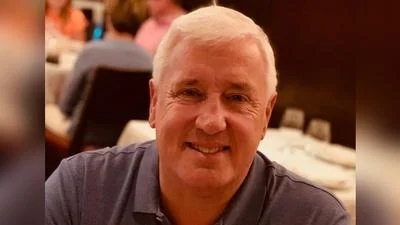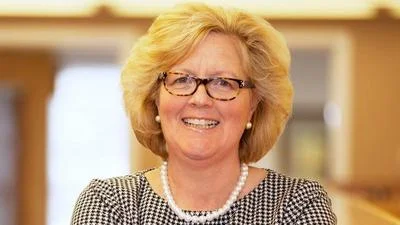Mendota Community Hospital issued the following announcement on Nov. 29.
Every year, more than 795,000 people in the United States have a stroke, according to the Centers for Disease Control and Prevention. This leads to about 140,000 deaths. To put it plainly, strokes are very common.
Yet, myths about strokes are prevalent. Unfortunately, misinformation and a misunderstanding of strokes can lead to devastating results for stroke sufferers.
The most important thing to know about strokes is this: the only proper response to a stroke is to call 9-1-1 and get taken to the nearest stroke-certified hospital for treatment as soon as possible.
Debunking the myths
Monica Simionescu, MD, is a vascular neurologist with OSF HealthCare Saint Anthony Medical Center, which handles more stroke cases than any other hospital in the Rockford, Illinois region. She understands that time is critical for treating strokes. She also knows that false beliefs can keep people from getting the treatment they need.
Myth #1: Strokes only happen to the elderly.
Fact:“The fact is that elderly patients are more prone to strokes, but about 25 percent of strokes happen to people younger than 65,” Dr. Simionescu said. “Most are likely related to heart disease or blood clot disorders.”
Myth #2: Strokes are painful.
Fact: “Actually pain is not a common symptom of stroke,” Dr. Simionescu said.
Hemorrhagic strokes, when a vessels in the brain bursts, can be associated with headaches, she added, but most strokes – caused by a blood clot in the brain – do not cause pain.
Myth #3: Strokes are hard to identify.
Fact: Stroke experts try to educate the public on a simple acronym to remember the symptoms of a stroke.
That acronym is FAST.
F: Facial drooping
A: Arm weakness. Can you lift your arms above your head and hold them there?
S: Speech impairment. Slurring speech or difficulty speaking is a major sign.
T: Time to call 9-1-1. Do it immediately.
Myth #4: Strokes aren’t hereditary.
Fact: “The conditions that increase your risk of stroke, like heart disease, blood clot disorders or vascular problems can be inherited,” Dr. Simionescu said.
Myth#5: Small strokes don’t need to be treated.
Fact: “Small strokes, if located in the right spots, can cause major deficits in your brain’s abilities,” Dr. Simionescu said. “And after any stroke, you’re at higher risk for a repeat stroke. Big or small, all strokes need to be treated the same.”
Myth #6: You can treat a stroke by taking aspirin.
Fact: At best, taking aspirin will do nothing to cure an ischemic stroke. At worst, it will make things worse during a hemorrhagic stroke.
“Getting to the hospital is the thing to do,” Dr. Simionescu said.
Myth #7: If the symptoms go away, you don’t need to see a doctor.
Fact: “This is completely wrong,” according to Dr. Simionescu. “If the symptoms go away, it may be a small stroke, which exposes you to a greater risk of having a bigger one. You are at high risk for a major stroke, so you need to get to the emergency room or a doctor as soon as possible.”
Myth #8: Strokes are not preventable.
Fact: “Actually, 80-90 percent of strokes can be prevented by controlling risk factors like blood pressure, and making lifestyle modifications,” Dr. Simionescu said.
You can learn more of the risk factors for stroke at ini.org. Which ones apply to you and how can you control or minimize them?
Myth #9: There is no life after a stroke.
Fact: “This is not true,” Dr. Simionescu said. “We have more and more ways to treat strokes, and if we intervene in time we can actually save major deficits. With rehabilitation a good percentage of patients will actually be able to function quite well and pursue full lives.”
Original source can be found here.

Source: Mendota Community Hospital






 Alerts Sign-up
Alerts Sign-up